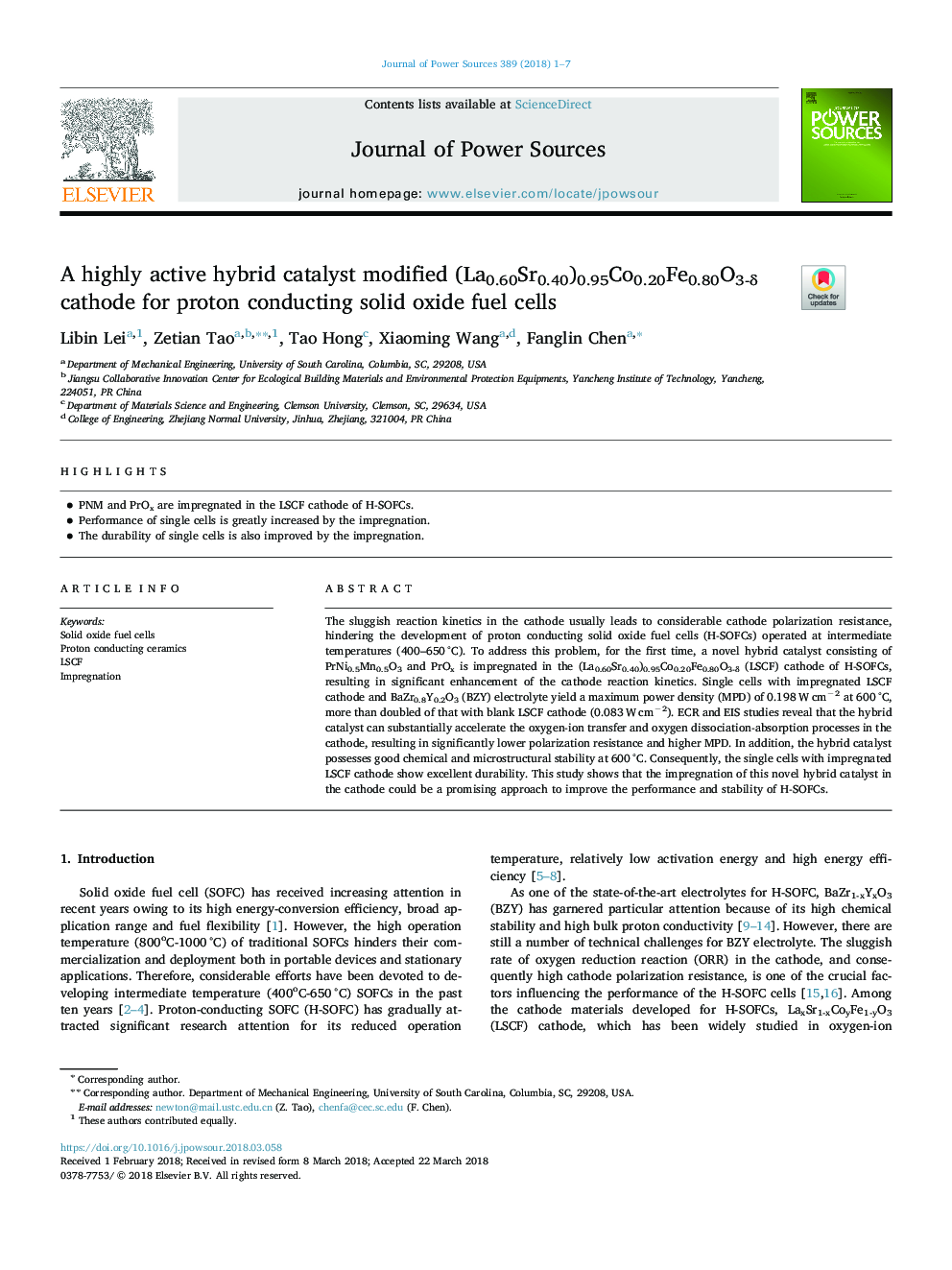| Article ID | Journal | Published Year | Pages | File Type |
|---|---|---|---|---|
| 7725204 | Journal of Power Sources | 2018 | 7 Pages |
Abstract
The sluggish reaction kinetics in the cathode usually leads to considerable cathode polarization resistance, hindering the development of proton conducting solid oxide fuel cells (H-SOFCs) operated at intermediate temperatures (400-650â¯Â°C). To address this problem, for the first time, a novel hybrid catalyst consisting of PrNi0.5Mn0.5O3 and PrOx is impregnated in the (La0.60Sr0.40)0.95Co0.20Fe0.80O3-δ (LSCF) cathode of H-SOFCs, resulting in significant enhancement of the cathode reaction kinetics. Single cells with impregnated LSCF cathode and BaZr0.8Y0.2O3 (BZY) electrolyte yield a maximum power density (MPD) of 0.198â¯Wâ¯cmâ2 at 600â¯Â°C, more than doubled of that with blank LSCF cathode (0.083â¯Wâ¯cmâ2). ECR and EIS studies reveal that the hybrid catalyst can substantially accelerate the oxygen-ion transfer and oxygen dissociation-absorption processes in the cathode, resulting in significantly lower polarization resistance and higher MPD. In addition, the hybrid catalyst possesses good chemical and microstructural stability at 600â¯Â°C. Consequently, the single cells with impregnated LSCF cathode show excellent durability. This study shows that the impregnation of this novel hybrid catalyst in the cathode could be a promising approach to improve the performance and stability of H-SOFCs.
Related Topics
Physical Sciences and Engineering
Chemistry
Electrochemistry
Authors
Libin Lei, Zetian Tao, Tao Hong, Xiaoming Wang, Fanglin Chen,
